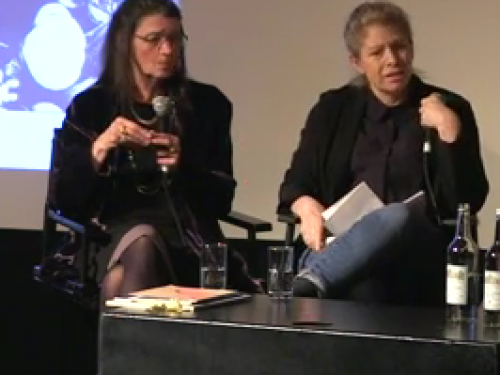The Writer of Our Time
An extract from 'A Jar of Wild Flowers: Essays in Celebration of John Berger'
On 18 November the ICA hosts a Culture Now in celebration of artist, critic and writer John Berger's 90th birthday. The panel features two contributors behind new book A Jar of Wild Flowers: Essays in Celebration of John Berger, in which thirty-seven of his friends, artistic collaborators and followers have come together to form the first truly international and cross-cultural celebration of his interventions. Here we present an extract from the preface to the book by Amarjit Chandan, courtesy of publisher Zed Books.
He is the writer of our time. As a man and as a man of letters he is original, intense and profound. He wants to be known as a storyteller. His writing—both poetry and prose—is the compass that points to the place where the heart of the matter is. It speaks with you. He thinks with feeling, to use Brecht’s expression. His writing is always an emotional journey both for him and the reader. Even his commas, his semicolons and his full stops are like stone engravings. There is something about Berger’s voice too – it sounds so compelling, so intimate; like the touch.
There is a beautiful word in Sanskrit, karun. a¯, meaning ‘compassion’. This is the master key of Berger’s oeuvre. This further opens up three other central themes of his writing: home (destiny and return; multiple levels of displacement and rootedness, exile, refuge and the implied loss of language), love (for humans, animals, things, surroundings) and resistance (against tyranny). Berger has talked about the predicament of a pardesi—the Punjabi word for a foreigner—at length. There is no word in English which can convey the same pathos of being a foreigner (the being in/of/from the other country) in the eyes of the people left behind. Perhaps the word ‘distant’ commonly used in Punjabi folksongs is a bit close: ‘You went to a distant land; and you became distant’ – throughout history an international refugee, homeless, an outsider, an alien, a lonely man.
Humanity is what connects readers with Berger.
Every human is an island, and on that level we are on different planets speaking different languages – in the plain and metaphoric sense. Humanity is what connects readers with Berger. What is the source of his kind of humanity? Has it to do with something sacred in his writing? Once he remarked:
"two things have coexisted within me. On the one hand a kind of materialism, which includes the Marxist view of history [Permanent Red] and on the other a sense of the sacred [The Old Testament]."
This he saw ‘not as a duality, but an essential unity’. All writers deal with the abstract, and the absolute abstraction is none other than God, or you can call it by any other name. Maybe the ‘Sky’, as Berger has done in his several writings. Poetry is basically about thinking with feeling, and prose without feeling would sound hollow. This negates the false dichotomy created between prose and poetry. They are the same. Berger’s each word, punctuation and pause written on the page is a testimony to that. It touches the absolute; almost.
Berger’s writing has influenced and inspired a whole range of creative minds all over the world. His writing works like that. His close friend and collaborator Mike Dibb told me that once in the mid 1970s Berger’s New Society essay about drawing his dead father inspired him to make a two-hour film Seeing Through Drawing, still possibly the longest arts film BBC2 has ever shown. There are many stories of how readers identify profoundly, body and soul, with Berger’s storytelling, whether it is the description of the topography of Budapest or prisoners in Italy or a peasant in the Punjab leaving home for vilãyat—foreign land—across the proverbial seven seas, or more recently his discourse on particle physics in a film on the CERN laboratory in Geneva searching for that ‘Goddamn particle’. Do his readers find it liberating? Is the existential angst not further expanded with the extent of multiplied horizons? The answer is yes in both cases.
John Berger is our conscience keeper.
John Berger is our conscience keeper. In these days of growing turmoil and exploitation, he has turned to direct political writing ‘with a greater sense of urgency’. Now Language has been trafficked and usurped – the corporate bourgeoisie have stolen it from humanity. Each word Berger writes is reclaimed from tyranny. He expresses his pain but without despair, and he asserts that there is spiritual value in it. An ‘I’ is turned into ‘We’ – the personal sees the horizon of a collective.
When the book opens the Word is invoked. A poem titled ‘5 am’ by Berger ends like this:
When the book closes
the pages learn
and a pillow reads
what is in our heads.
Thank you, John. Thank you. ■
Culture Now: Discussing John Berger is on 18 November and the book A Jar of Wild Flowers: Essays in Celebration of John Berger is available from the ICA Bookshop.
This article is posted in: Articles, Events, Store
Tagged with: John Berger, Culture Now, Book Extract, Art History






